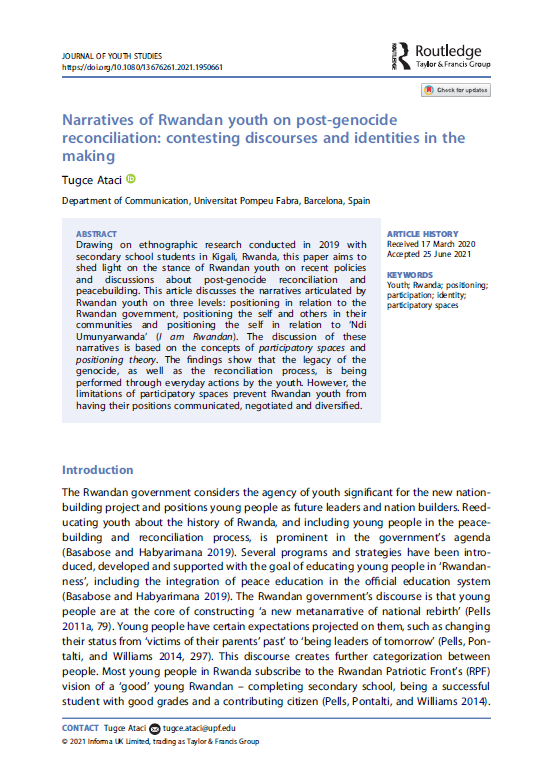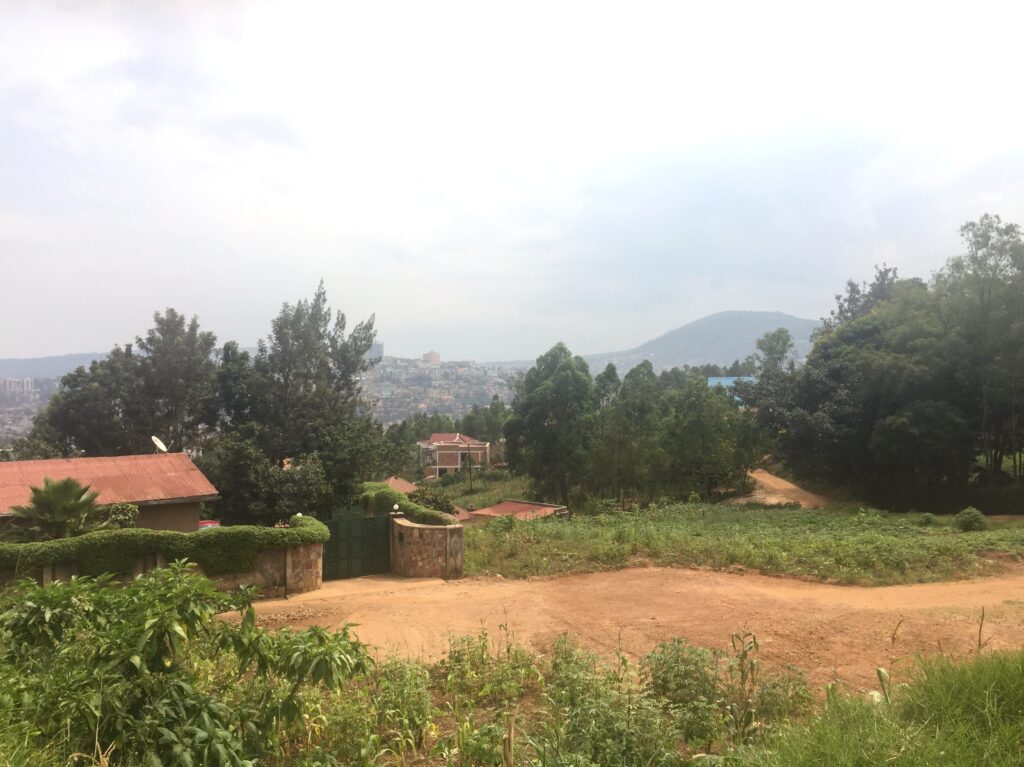
Narratives of Rwandan youth on reconciliation
This article I wrote on the narratives of Rwandan youth on reconciliation and peacebuilding was my first ever publication. So, as you can imagine, I was very happy to see it published in the Journal of Youth Studies. The peer-review process was very long. I’m planning to write a post on my experience during my first peer-review process as a novice researcher (stay tuned for that!).
When I came back from my fieldwork in Kigali, Rwanda, I started transcribing the interviews and focus group discussions. Although my thesis focused on digital practices and transmedia storytelling, I thought I had interesting data on how the participants in my research discussed reconciliation and peacebuilding in Rwanda. So I wrote this article to present the data I collected on what kind of spaces young people in Rwanda engage with the peacebuilding and reconciliation process and what positions and discourses they acquire and negotiate within these participatory spaces. I also looked into how the young Rwandans positioned other people within and outside of their communities in relation to the reconciliation process in the country.
The findings demonstrate that being a young Rwandan is practiced with complicated variables within various participatory spaces in Rwanda. Young people in my research mostly internalized some of the dominant discourses of the ruling party as well as their assigned positions such as the “future leaders” of the country. However, that did not mean that these young people did not reject certain aspects of the official discourse. But, those who did so publicly were from privileged backgrounds. Those from middle and low-income families feared backlash, and thus only expressed criticism or resistance privately.

Being positioned as ‘disrespectful’ by their elders when they disagreed or argued led to a disconnection between generations and the self-censorship of youth. Young people in this research also positioned others and identified certain groups as a threat to Rwandan national identity such as the Rwandan diaspora which is critical of the current regime.
The participants did not identify with ethnic categories (Hutu, Tutsi, Twa), however, they were aware of who belonged to which ethnic group. Instead of ethnicity, young people created categorizations in order to define ‘Rwandanness’, identify who ‘is Rwandan’, and perform ‘being Rwandan’ accordingly.
The Rwandan youth are taught that they are responsible for the reconciliation of Rwanda. Yet, the silence of alternative spaces and the control over public participatory spaces where there is pressure to conform as well as tensions, lack of dialogue and gaps between rural and urban, young people and elders, and the privileged and underprivileged adds further complexity to the reconciliation process.